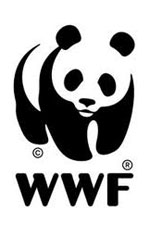
These areas border Kruger National Park and the surrounding Associated Private Nature Reserves and are hotspots for poaching.
Results revealed that communities in the area have a great desire and willingness to contribute towards rhino conservation. This stems from the recognition that rhinos are part of our natural heritage.
The message from the communities was clear; the rhino has a spiritual and heritage significance connecting them to their ancestry; and 90% of individuals are willing to contribute towards rhino conservation. It was further evident that 16% of individuals were aware and knew of rhino poachers living within their community. However, the elderly within the community were less open to identifying or talking about the identity of poachers as they feared repercussions.
Trust remained a high risk issue of contention where 68% of the community would rather consider supplying information on poachers if their identities are protected and an incentive is paid.
The study further discovered that these communities do not think that enough has been done to curb this issue because there has been little or no engagement with them - the very same people who have a vested interest in the survival of this species. Further to this, communities view youth, religious and traditional leaders, as major influencers on the communities (57%); providing opportunities for rhino efforts to establish ground with these influencers and have a clear focus on where these efforts could be targeted.
Dr Jo Shaw, rhino co-ordinator for WWF-SA explains, "As a fundamental element of establishing a National Rhino Programme, WWF-SA saw it vital to involve local communities in addressing the issue of poaching and establish a common voice with the community that will curb the decreasing numbers of our national heritage - the rhino.
"Local people can be the connective tissue in informing authorities about wildlife crime happening in their community and in turn enabling the community to act as the first critical line of defense against poaching," adds Dr Shaw.
Maseda Ratshikuni, head of cause marketing at Nedbank, says, "Nedbank recognises the severity of rhino poaching in SA, and as we celebrate Heritage Day, the losses we as a country and certainly as a continent continue to experience, is a constant reminder that appropriate and unified efforts are required. Nedbank is privileged to have contributed to nature conservation through its more than 20-year journey in sustainability; and through the Nedbank Green Affinity Programme, the trust has afforded us the opportunity to see rhino poaching through the lens of communities in aid of establishing a suitable rhino programme."
The rhino population in South Africa is drawing ever closer to the critical tipping point where populations start to decrease; to date over 635 rhinos have been illegally killed across South Africa in 2013. This is a global issue which has local relevance to communities living in the poaching 'hotspots'.